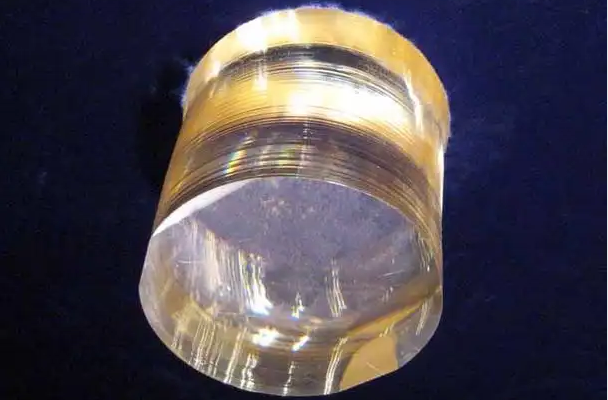Why is black silicon carbide often used to grind acousto-optic crystals?
Acousto-optic crystals refer to crystals with acousto-optic effects. Commonly used ones are lead molybdate (PbMoO4), lead molybdate (Pb2MoO5), tellurium dioxide (TeO2), lead germanovanadate, mercuric sulfide, and mercurous chloride, with a Mohs hardness of 4-6.
Black silicon carbide is suitable for grinding acousto-optic crystals, mainly relying on its unique physical and chemical properties, which make it excellent in precision machining. The specific reasons are as follows:
1. Physical performance advantages
High hardness and wear resistance: The hardness of black silicon carbide is second only to diamond and cubic boron nitride (Mohs hardness is about 9.15), which can efficiently cut hard and brittle materials such as acousto-optic crystals, while maintaining its own structural stability and reducing abrasive loss.
Excellent thermal conductivity: The heat generated during the grinding process can be quickly discharged to avoid cracks or thermal stress damage to the acousto-optic crystal due to local overheating.
Self-sharpening: New cutting edges can be continuously generated during grinding to maintain sharpness, ensure processing efficiency and surface consistency.
2. Chemical stability
Black silicon carbide has stable chemical properties and is not easy to react with acousto-optic crystals (such as lithium niobate, lithium tantalate, etc.), avoiding surface contamination or composition changes, and ensuring the integrity of the crystal’s optical properties.
3. Processing adaptability and surface quality
Precision control capability: By adjusting the particle size (such as micro-powder grade), high-precision grinding of the acousto-optic crystal surface can be achieved to meet the requirements of finish and flatness.
Low-damage processing: Moderate toughness can effectively cut materials and reduce crystal edge collapse or micro-cracks, especially suitable for the stringent requirements of acousto-optic devices for structural integrity.
4. Industry application verification
Black silicon carbide has been widely used in the precision processing of similar hard and brittle materials, such as single crystal silicon wafers, optical glass and cemented carbide polishing, and its process maturity can be directly transferred to the field of acousto-optic crystals.
Summary
Black silicon carbide has become an ideal abrasive for grinding acousto-optic crystals due to its high hardness, thermal conductivity, chemical inertness and controllable surface processing capabilities. Its comprehensive advantages in heat dissipation protection, low-damage processing and surface quality control meet the core requirements of acousto-optic crystals for optical performance and structural accuracy.

